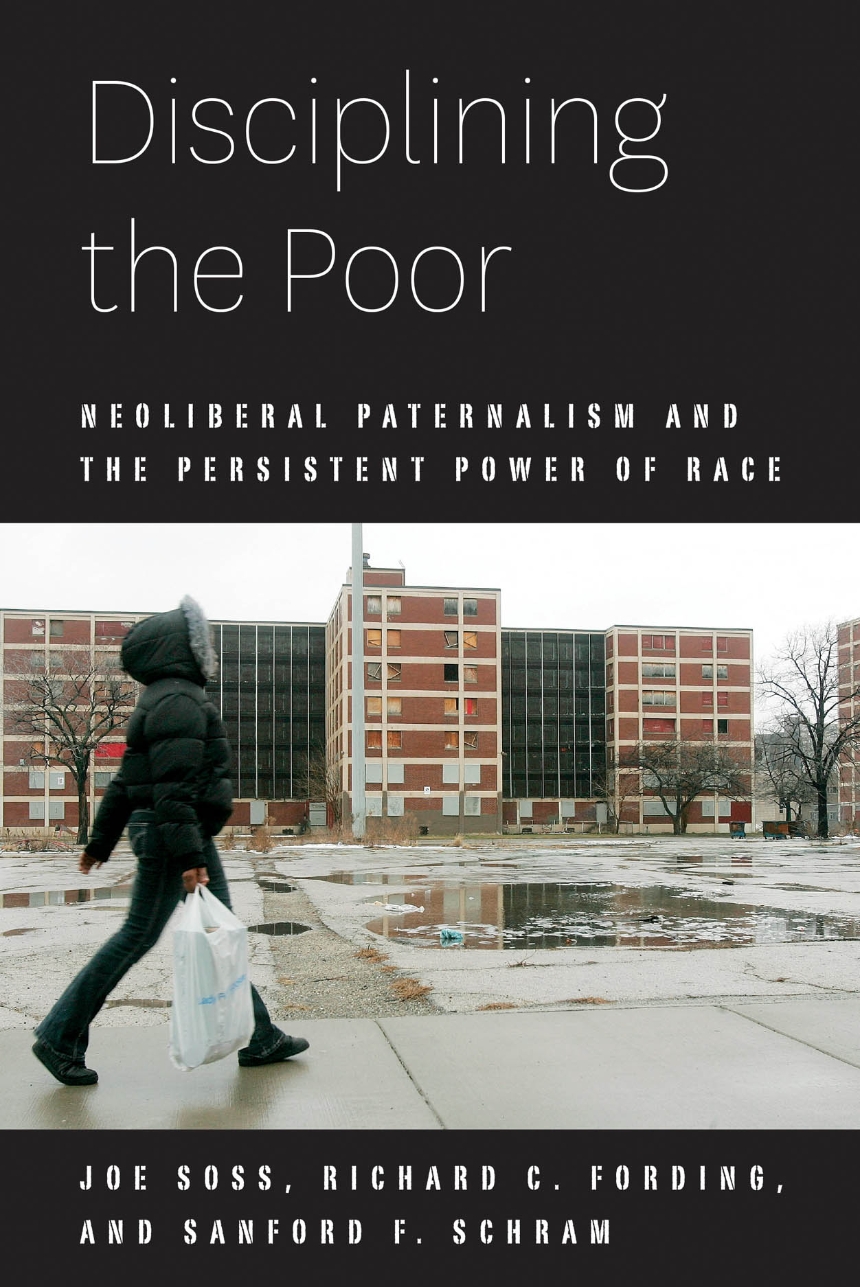Disciplining the Poor
Neoliberal Paternalism and the Persistent Power of Race
Disciplining the Poor
Neoliberal Paternalism and the Persistent Power of Race
Disciplining the Poor explains the transformation of poverty governance over the past forty years—why it happened, how it works today, and how it affects people. In the process, it clarifies the central role of race in this transformation and develops a more precise account of how race shapes poverty governance in the post–civil rights era. Connecting welfare reform to other policy developments, the authors analyze diverse forms of data to explicate the racialized origins, operations, and consequences of a new mode of poverty governance that is simultaneously neoliberal—grounded in market principles—and paternalist—focused on telling the poor what is best for them. The study traces the process of rolling out the new regime from the federal level, to the state and county level, down to the differences in ways frontline case workers take disciplinary actions in individual cases. The result is a compelling account of how a neoliberal paternalist regime of poverty governance is disciplining the poor today.
368 pages | 45 line drawings, 1 map, 1 table | 6 x 9 | © 2011
Chicago Studies in American Politics
Political Science: Public Policy
Sociology: Individual, State and Society
Reviews
Table of Contents
1 INTRODUCTION
REFERENCES
NOTES
INDEX
